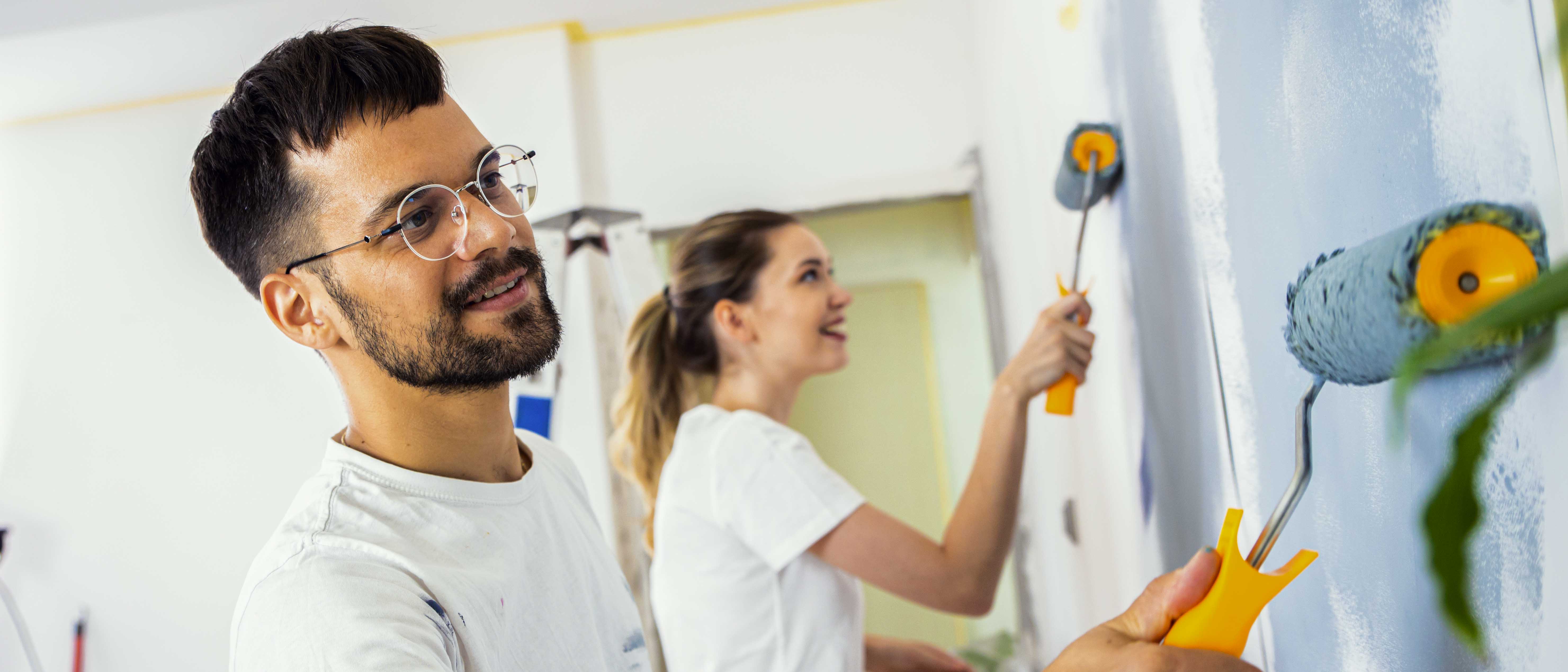The Benefits of Using Primer Before Painting
Painting is a transformative way to refresh and beautify your home, but to achieve the best results, don't skip the crucial step of using primer. Primer is often an overlooked hero in the world of painting, but its benefits are undeniable. In this blog, we'll explore why using primer before painting is a smart choice.
- Enhanced Adhesion: Primer acts as a bonding agent between the surface and the paint. It creates a strong and stable base, allowing the paint to adhere better. This is especially important when painting over porous or uneven surfaces like drywall or wood.

- Improved Coverage: Primer helps paint adhere evenly, reducing the number of coats required for full coverage. This not only saves you time and paint but also provides a smoother and more professional finish.
- Stain and Odour Blocking: Certain surfaces, such as wood or previously painted walls with stains or odours, can bleed through paint. Primer seals these stains and odours, preventing them from resurfacing on your freshly painted walls.
- Sealing and Protection: Primer seals porous surfaces, preventing moisture from penetrating and causing damage. It also provides a protective layer that can extend the lifespan of your paint job.

- Uniform Appearance: Primer evens out the surface texture and colour, ensuring that your final paint coat looks consistent and uniform. This is especially important when transitioning between different paint colours or covering up imperfections.
- Enhanced Durability: Using primer improves the paint's durability and longevity. It helps the paint withstand wear and tear, making it a great choice for high-traffic areas like hallways and kitchens.
- Better Paint Adhesion on New Surfaces: When painting new drywall, wood, or other raw surfaces, primer is essential. It seals and prepares the surface for paint, preventing the paint from being absorbed too quickly and resulting in uneven finishes.

- Cost-Effective: While some may see primer as an additional expense, it can actually save you money in the long run. With improved adhesion and coverage, you'll use less paint, and your paint job will last longer, reducing the need for frequent repaints.
- Versatility: Primers come in various formulations to suit different needs, such as water-based or oil-based options. There are also specialised primers for specific situations, such as mould-resistant primers for damp areas.
The benefits of using primer before painting are numerous and significant. It enhances adhesion, improves coverage, seals stains and odours, protects surfaces, and contributes to a uniform and long-lasting finish. To ensure a successful and enduring paint job, consider primer an essential part of your painting process.
